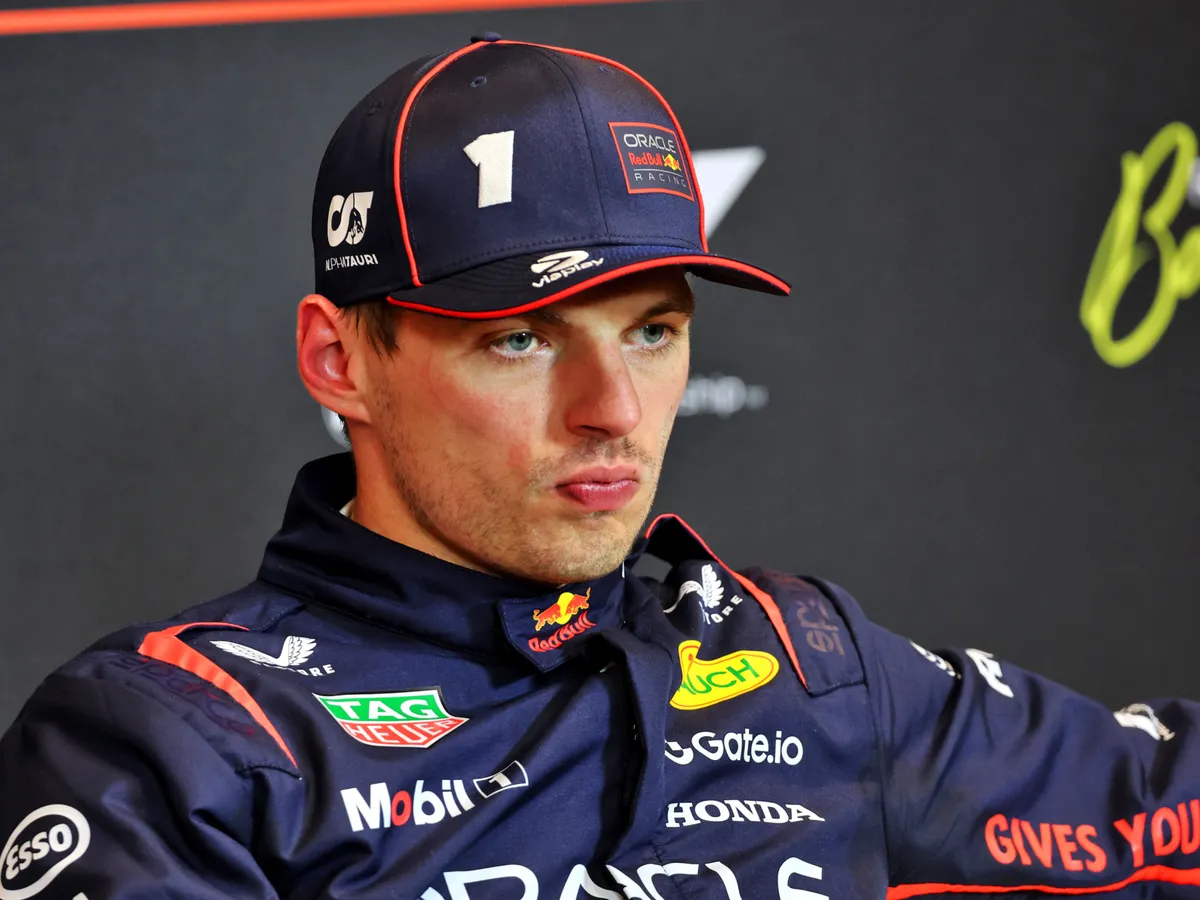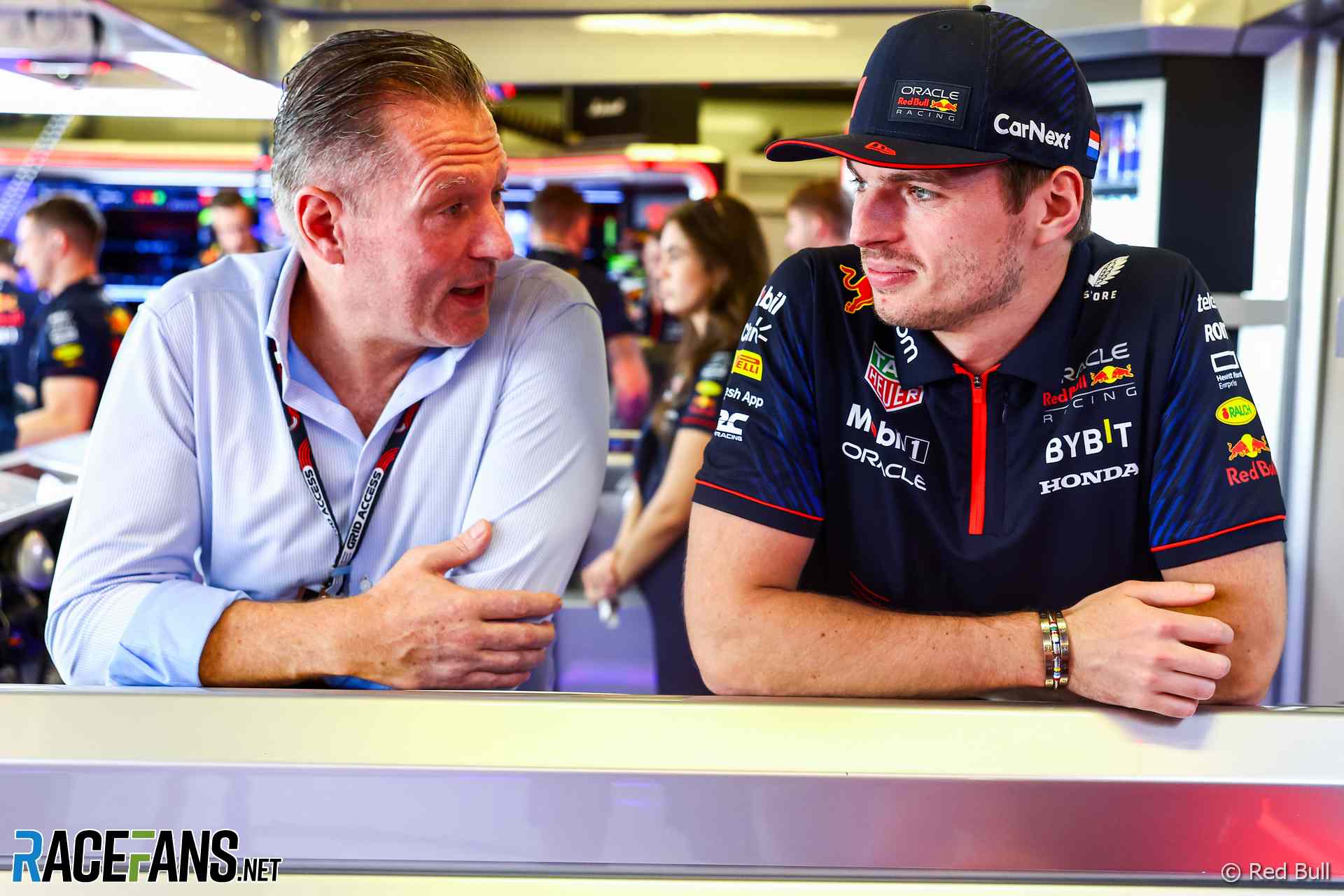Max Verstappen: Aggression or Lack of Control?
Formula 1 has always been a sport of precision, strategy, and unparalleled aggression. To compete at the highest level, a driver must have the ability to take calculated risks and make bold moves on the track. Aggression is often an essential trait for success; it’s an element that defines a driver’s tenacity and ability to seize every opportunity. However, there’s a fine line between using aggression strategically and letting it dictate every move you make behind the wheel. In this context, Max Verstappen’s driving style has garnered significant attention, with many questioning whether his approach is based on calculated aggression or a lack of self-control.
When we compare Verstappen to other Formula 1 greats such as Ayrton Senna and Michael Schumacher, there are notable differences in how they employed aggression throughout their careers. While both Senna and Schumacher had moments of questionable behavior on the track, their aggression was often rooted in a broader, strategic context. Verstappen, on the other hand, seems to race with an emotional, almost uncontrollable aggression that appears irrespective of the circumstances. In this article, we will examine Verstappen’s approach to racing, how it differs from his legendary predecessors, and the potential long-term consequences of his behavior on and off the track.

The Strategic Aggression of Senna and Schumacher
Senna and Schumacher are often brought up in conversations about aggressive driving. Both are known for their moments of hard racing, where they pushed the limits of what was acceptable on the track. However, the key difference lies in their approach: their aggression was often tactical, calculated, and aimed at achieving a particular goal, typically a championship.
Senna’s most infamous moment, the 1990 Japanese Grand Prix, is a perfect example of this tactical aggression. In that race, Senna collided with Alain Prost at the start, ending Prost’s chances of securing the title. While the move was undoubtedly controversial and widely regarded as unsportsmanlike, it was not an emotional outburst. Senna saw it as an act of retribution for the previous year’s events, where he believed he was unfairly deprived of a championship. The decision to take out Prost was not spur-of-the-moment; it was the culmination of a long-standing rivalry and a championship battle that had reached a boiling point. In this instance, Senna’s aggression had a purpose — to level the playing field and settle the score.
Similarly, Schumacher had his own moments of controversy, particularly during his title fights. His collision with Damon Hill at the 1994 Australian Grand Prix and his attempted move on Jacques Villeneuve at the 1997 European Grand Prix were both instances where his aggression crossed the line. However, these actions were not random acts of fury; they were calculated decisions in high-stakes moments of a championship race. Schumacher’s decisions were born out of a desire to win, to secure a championship — they were not emotionally driven reactions. They were calculated risks taken with the knowledge of the consequences.

Verstappen’s Aggression: A Constant Factor
Max Verstappen’s aggression, by contrast, appears to be a constant factor in his racing. Whether in the early laps of a sprint race or the final moments of a title-deciding grand prix, Verstappen races with a level of aggression that seems to transcend the situation. It doesn’t matter if the stakes are high, low, or nonexistent — his aggression is unrelenting.
Take the 2018 Brazilian Grand Prix as an example. Verstappen, already a race winner and one of the most talked-about talents on the grid, was leading the race comfortably when Esteban Ocon, a lapped driver on fresher tires, tried to un-lap himself. Ocon was within his rights to do so, but instead of easing off and letting Ocon pass safely, Verstappen chose to fight him as if it were a race for the championship. The two collided, and Verstappen lost the victory. His reaction afterward — a violent confrontation with Ocon in the FIA garage — only served to reinforce the idea that Verstappen was driven by something deeper than mere competition. There was no championship on the line, no logical reason for his actions; it was simply emotion overriding reason.
The 2021 Saudi Arabian Grand Prix provides another illuminating example. Verstappen, after being told to give the position back to Lewis Hamilton, brake-tested him in a dangerous move that could have resulted in a high-speed collision. Once again, the aggression wasn’t calculated; it was a knee-jerk emotional response. Verstappen wasn’t trying to gain a competitive advantage in a tactical sense — he was angry, and he acted on that anger. This was not racing; it was retaliation.
Verstappen’s Aggression Outside of Title Fights
While the context of a title fight might justify some of Verstappen’s aggression in the eyes of his supporters, what about the times when he was not in a close championship battle? In races like the 2022 Brazilian Grand Prix, the 2024 Hungarian Grand Prix, and the 2024 Austrian Grand Prix, Verstappen’s aggressive driving seemed unnecessary and out of place. These incidents involved him racing hard against drivers like Hamilton, Norris, and Russell, yet none of these races were title-deciding or even particularly high-stakes in terms of championship implications.
In these instances, Verstappen’s aggressive maneuvers were less about strategy and more about ego. When a driver races with such intensity in moments where the stakes are low, it can be difficult not to conclude that their aggression is based on something more primal than a desire to win. Verstappen’s actions appear to be driven by the need to assert dominance, to show that no one can challenge him — even when there’s no need to prove anything.

The Consequences of Unchecked Aggression
One of the most significant issues with Verstappen’s aggression is that it appears to be largely unchecked. The FIA has rarely penalized him with the same severity as other drivers who engage in similar behaviors. More often than not, Verstappen’s actions are brushed off as racing incidents, and he is given the benefit of the doubt. This lack of consistent punishment sends the message that this type of behavior is acceptable, even expected, from the driver of the dominant team.
Red Bull, too, has been quick to defend Verstappen, often downplaying incidents that would have been scrutinized more heavily if they involved other drivers. This blind defense has allowed Verstappen to continue racing with little regard for the consequences of his actions. The problem is that this unchecked aggression will eventually catch up with him. While he may continue to win races and championships, the longer this pattern continues, the more tarnished his legacy will become.
In Formula 1, legacy is about more than just the number of titles you win. It’s about how you win those titles, how you behave on track, and how you treat your competitors. The greats — Senna, Schumacher, and Hamilton — all built their legacies not just through victory, but through their ability to manage aggression. Verstappen, however, seems to be creating a legacy based on uncontrolled aggression, a refusal to back down, and an unwillingness to consider the broader implications of his actions.
The Verdict
Max Verstappen is undoubtedly one of the most talented drivers to ever grace the Formula 1 grid. His speed, car control, and racecraft are exceptional. However, his inability to temper his aggression could be his greatest weakness. In the long run, Verstappen’s legacy will not only be shaped by his championships but by the way he races. If he continues to race with unchecked aggression, refusing to acknowledge when it’s necessary to dial it back, he risks becoming a polarizing figure in F1 history.
In contrast to drivers like Senna, Schumacher, and Hamilton, Verstappen’s aggression often seems unprovoked and emotionally driven. It’s not about racing for a championship or making a calculated move — it’s about personal pride, ego, and the need to assert dominance. If Verstappen doesn’t learn to manage his aggression and recognize when it’s appropriate to back off, his legacy will forever be tied to the idea of a driver who never knew where the line was — or worse, one who never cared. And in a sport like Formula 1, where precision and control are paramount, that could ultimately be his undoing.
Full Video:





